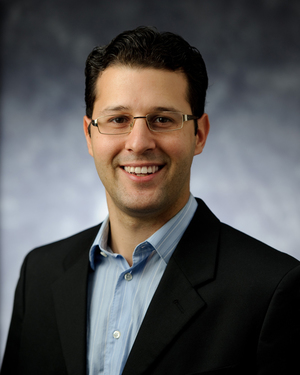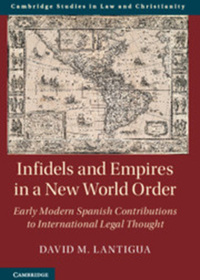
- University of Notre Dame
- Assistant Professor
- Graduate Fellow (2011-2012)
- “Idolatry and the Rights of Infidels: The Christian Legal Theory of Religious Toleration in the New World”
David Lantigua is a Ph.D. candidate in Moral Theology and Christian Ethics at the University of Notre Dame. His research focuses on the legal theory of toleration that emerged in the context of New World debates concerning Amerindian religious customs and cultural practices.
Mr. Lantigua has taught a course on comparative religious ethics and lectured on Catholic moral theology and world religions. He is co-author with Darrell Fasching and Dell deChant of Comparative Religious Ethics: A Narrative Approach to Global Ethics, 2nd Edition (Wiley-Blackwell, 2011). He is also contributor to Hispanic American Religious Cultures (ABC-CLIO, 2009) and has published in Aporia: A Student Journal of Philosophy. He currently moderates a Notre Dame Blog on sixteenth-century Spanish political theology called The School of Salamanca. Mr. Lantigua is a past recipient of the Diversity Fellowship at the University of Notre Dame and, for the Spring semester of 2011, he was awarded two grants to conduct dissertation research in Spain by Notre Dame’s Kellogg Institute for International Studies and the Institute for Scholarship in the Liberal Arts. He currently serves as a member of The Society of Christian Ethics and the American Academy of Religion.
Publications
-
Infidels and Empires in a New World Order: Early Modern Spanish Contributions to International Legal Thought
Cambridge University Press, 2020

Before international relations in the West, there were Christian-infidel relations. Infidels and Empires in a New World Order decenters the dominant story of international relations beginning with Westphalia in 1648 by looking a century earlier to the Spanish imperial debate at Valladolid addressing the conversion of native peoples of the Americas. In addition to telling this crucial yet overlooked story from the colonial margins of Western Europe, this book examines the Anglo-Iberian Atlantic to consider how the ambivalent status of the infidel other under natural law and the law of nations culminating at Valladolid shaped subsequent international relations in explicit but mostly obscure ways. From Hernán Cortés to Samuel Purchas, and Bartolomé de las Casas to New England Puritans, a host of unconventional colonial figures enter into conversation with Francisco de Vitoria, Hugo Grotius, and John Locke to reveal astonishing religious continuities and dissonances in early modern international legal thought with important implications for contemporary global society.